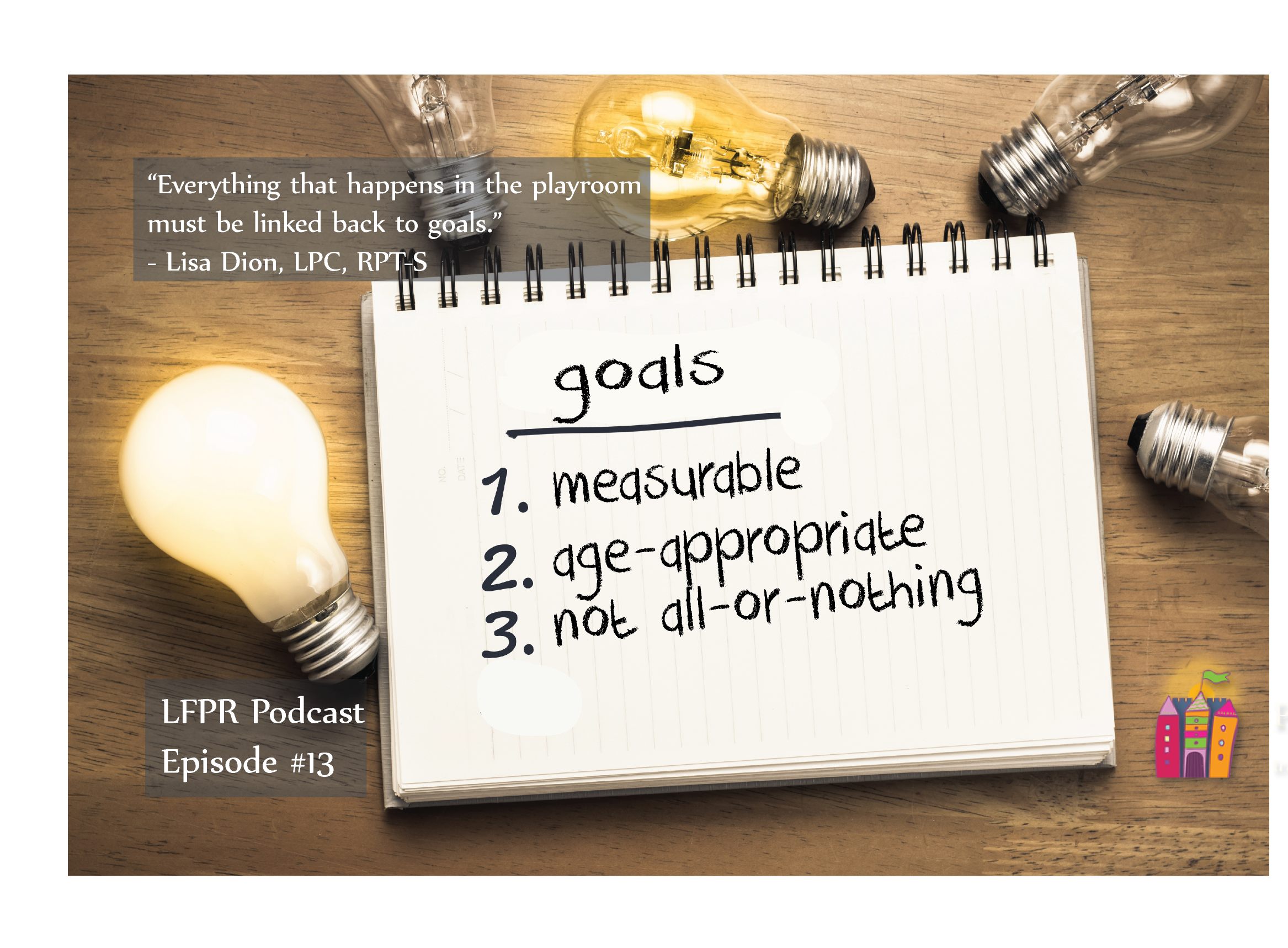From the boardroom to the playroom and everywhere else, setting goals is a vital part of success. But in therapy sessions, the best goals follow certain rules, rules that allow both parent and therapist to see the progress made. After all, it is seeing this progress that acts as a catalyst of encouragement, keeping the parent bought into the play therapy process and the therapist able to celebrate the changes their clients are making.
1:16 Why is setting goals so important?
2:00 What is a goal?
2:40 How do we set goals with parents and clients?
2:55 How do we know if goals aren’t clear?
3:44 The three things goals must be
4:30 What is the danger in setting a goal that is age-inappropriate or all-or-nothing?
5:30 People are multifaceted human beings
6:00 Setting realistic goals
8:00 How do we teach parents to parent in a manner that is age-appropriate?
9:25 Once a goal is set, what are we measuring?
11:00 Lisa discusses a past client with generalized anxiety
13:50 Why are measurable goals so vital?
14:40 When parents can’t tune into progress, they grow discouraged
16:00 How can the right questions help parents see progress?
16:50 Goals are the agreement for why the child is in therapy
17:30 How does translating play help with goal setting?
18:40 Looking back at your goals to see if they follow the criteria
19:00 Linking play to goals





